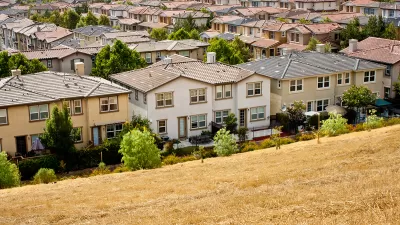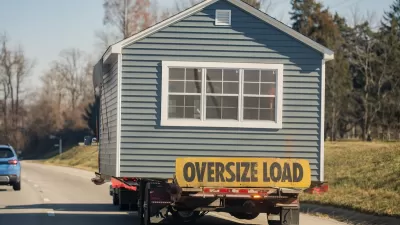Burdened by rising housing costs, many millennials are finding it increasingly difficult to pay off debt or save for the future.

Faced with "increased housing and living costs, student loans, a sometimes tough employment market, and the cost of raising children," many millennials—some of whom are turning 40 this year—find themselves burdened by massive amounts of debt and struggling to make ends meet. The "perfect storm" of "rising costs, scarcity of supply, lack of new development, increased debt and stalled wage growth," writes Megan Leonhardt for CNBC, has forced many "to stretch their already-overburdened budgets to the max and, in some cases, hampered their ability to get ahead and save for the future."
Many older millennials—those born between 1981 and 1989—spend more than the recommended 30% of their income on housing, hindering their ability to save or invest. Across the United States, "housing costs have been on the rise for decades, more than doubling since 1985," and more than 17 million people spend more than half of their income on housing. With demand rising faster than supply, "home prices have consistently been on the rise since early 2012." Renters aren't faring any better. "From 2001 to 2019, rents rose by 15% while the median renter household income rose just 3.4%," making it practically impossible for many renters to save for buying a home.
Despite the new flexibility afforded by remote work, millennials who want to buy homes face an uphill battle and find themselves "making big sacrifices to prioritize debt repayment."

Maui's Vacation Rental Debate Turns Ugly
Verbal attacks, misinformation campaigns and fistfights plague a high-stakes debate to convert thousands of vacation rentals into long-term housing.

Planetizen Federal Action Tracker
A weekly monitor of how Trump’s orders and actions are impacting planners and planning in America.

In Urban Planning, AI Prompting Could be the New Design Thinking
Creativity has long been key to great urban design. What if we see AI as our new creative partner?

King County Supportive Housing Program Offers Hope for Unhoused Residents
The county is taking a ‘Housing First’ approach that prioritizes getting people into housing, then offering wraparound supportive services.

Researchers Use AI to Get Clearer Picture of US Housing
Analysts are using artificial intelligence to supercharge their research by allowing them to comb through data faster. Though these AI tools can be error prone, they save time and housing researchers are optimistic about the future.

Making Shared Micromobility More Inclusive
Cities and shared mobility system operators can do more to include people with disabilities in planning and operations, per a new report.
Urban Design for Planners 1: Software Tools
This six-course series explores essential urban design concepts using open source software and equips planners with the tools they need to participate fully in the urban design process.
Planning for Universal Design
Learn the tools for implementing Universal Design in planning regulations.
planning NEXT
Appalachian Highlands Housing Partners
Mpact (founded as Rail~Volution)
City of Camden Redevelopment Agency
City of Astoria
City of Portland
City of Laramie





























